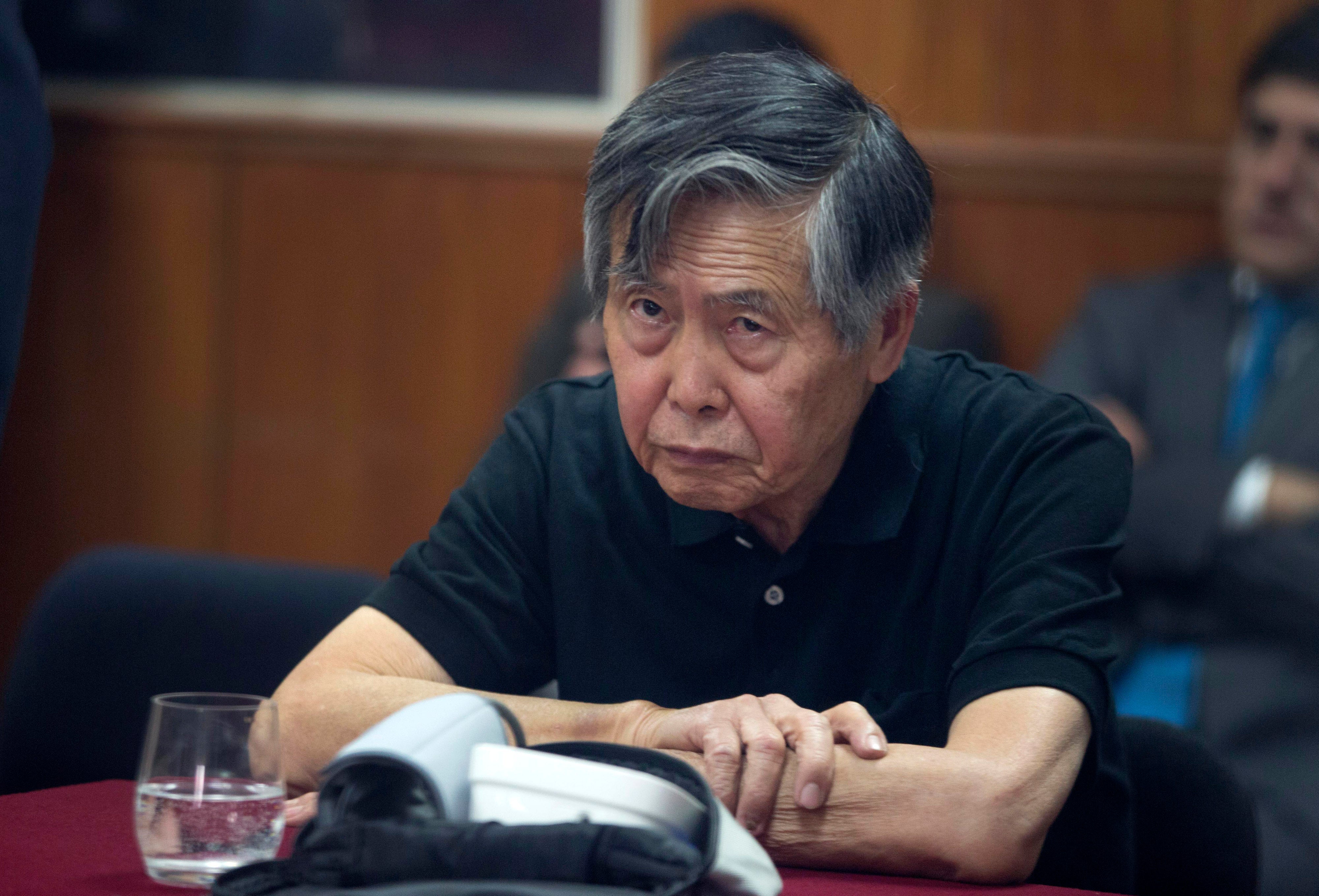In Peru, sterilization case against Fujimori goes to court
Former Peruvian President Alberto Fujimori is on trial for his role in a 1990s government program in which many Indigenous women in poor communities say they were forcibly sterilized, and some died or suffered serious injuries because of infection

Your support helps us to tell the story
From reproductive rights to climate change to Big Tech, The Independent is on the ground when the story is developing. Whether it's investigating the financials of Elon Musk's pro-Trump PAC or producing our latest documentary, 'The A Word', which shines a light on the American women fighting for reproductive rights, we know how important it is to parse out the facts from the messaging.
At such a critical moment in US history, we need reporters on the ground. Your donation allows us to keep sending journalists to speak to both sides of the story.
The Independent is trusted by Americans across the entire political spectrum. And unlike many other quality news outlets, we choose not to lock Americans out of our reporting and analysis with paywalls. We believe quality journalism should be available to everyone, paid for by those who can afford it.
Your support makes all the difference.Former Peruvian President Alberto Fujimori is on trial for his role in a 1990s government program in which many Indigenous women in poor communities say they were forcibly sterilized, and some died or suffered serious injuries because of infection.
The judicial process led by Judge Rafael Martínez began Monday following years of demands by human rights activists as well as numerous obstacles, including prosecutors who shelved investigations of Fujimori in the past.
The new prosecutor in the case, Pablo Espinoza, said sterilizations were carried out in unsanitary conditions and that some women died from infections. Fujimori has been implicated in the deaths of five women and the injuries of another 1,301 women who were allegedly sterilized against their will.
Fujimori, 82, is serving a 25-year prison sentence for two killings by the military during his 1990-2000 administration. He has also been convicted of corruption and faces another trial for the murder of six farmers by a military death squad during his administration.
Fujimori said through his lawyers that he should not be tried in the sterilization case because, when he was extradited from Chile in 2007, it was not included in the group of crimes for which he was going to be judged.
Some other former members of Fujimori’s government are also accused in the sterilization case.
As president, Fujimori announced at a congress in China in 1995 that his government would undertake a program to help poor Peruvian women decide the number of children they wanted to have. Later, there were growing complaints from women in poor communities in the Andes who said they had been sterilized without their knowledge.
Officials of Fujimori’s government claimed any excesses were the fault of overzealous local medical authorities. But the program was so controversial that the U.S. Congress cut aid payments to Peru that had been used to fund the program.
Fujimori had boasted that the sterilization program dropped Peru’s birth rate from 3.7 children per woman in 1990 to 2.7 children a decade later.
Subscribe to Independent Premium to bookmark this article
Want to bookmark your favourite articles and stories to read or reference later? Start your Independent Premium subscription today.